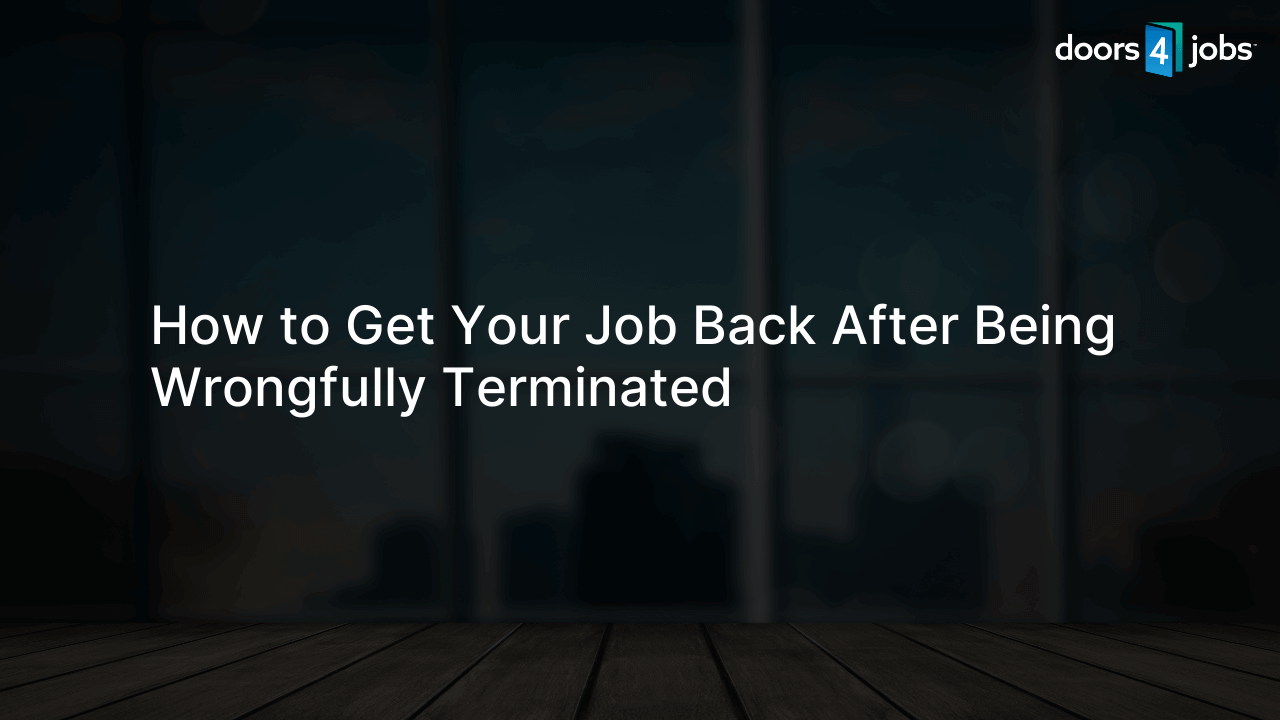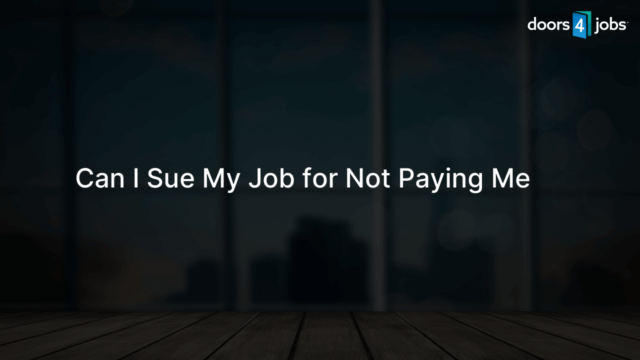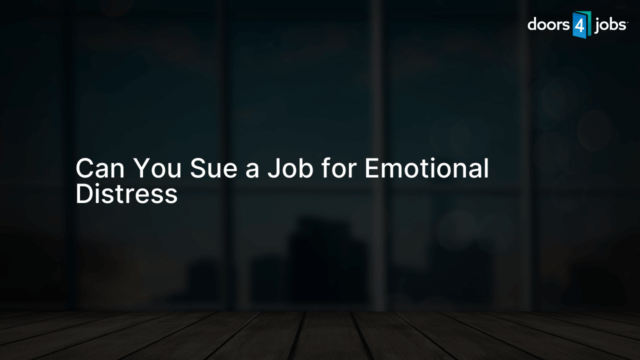To get your job back after being wrongfully terminated, follow these steps: 1) Review your employment contract, company policies, and labor laws to understand your rights. 2) Document evidence supporting your wrongful termination, including emails, conversations, and incidents. 3) Reach out to your employer to discuss your termination and seek a resolution, such as reinstatement or compensation. 4) Contact a labor attorney to help you navigate legal procedures if your employer refuses a reasonable resolution. 5) File a complaint with the relevant labor authorities or pursue a wrongful termination lawsuit if necessary.
Understand Your Rights in the Workplace
Before taking action, review your employment contract, company policies, and local labor laws to understand your rights. This will provide a solid foundation for your case and help you determine if your termination was indeed wrongful.
Evaluate Employment Contracts and Company Policies
Examine your employment contract and any relevant company policies for termination clauses, severance pay, and other terms that aid in your case. If you don’t have the documents, request a copy from your employer or Human Resources department.
Research Labor Laws and Regulations
Research your local labor laws to determine if your termination violates any regulations. This may include anti-discrimination laws, whistle-blower protections, or laws protecting employees from retaliation for exercising their rights.
Gather Essential Evidence
Compile evidence that supports your wrongful termination claims, such as emails, text messages, performance evaluations, and records of disciplinary actions. The more solid evidence you have, the stronger your case will be.
Maintain Written Records
Record all relevant interactions and events, including incidents that led to your termination, and keep a chronology to demonstrate a pattern of mistreatment or retaliation. Include witnesses who can corroborate your statements.
Initiate Dialogue with Your Employer
Contact your employer to discuss your termination and have an open conversation. Communicate your perspective, explain the laws or policies that were violated, and seek a fair resolution, such as reinstatement or compensation.
Prepare for Negotiations
Expect that your employer may not immediately agree to your demands. Be prepared to negotiate and present your evidence to support your case. Be respectful but firm in your communication to maintain professionalism.
Consult with a Labor Attorney
If your employer is unwilling to resolve the issue, consider consulting a labor attorney. Their expertise will help you navigate legal procedures, protect your rights, and advise you on the best course of action.
Assess the Feasibility of Legal Action
An experienced attorney will evaluate your case and inform you of the likelihood of success. Discuss your legal options, potential outcomes, and the costs associated with pursuing a wrongful termination lawsuit.
File a Complaint with Relevant Authorities
If informal negotiations and legal consultations fail, consider filing a complaint with the appropriate labor authorities, such as the Equal Employment Opportunity Commission (EEOC) or your state’s labor board.
Complete Necessary Paperwork
Collect all required forms, provide accurate information, and submit your complaint within the specified deadline. Your attorney can assist you in filling out and filing the paperwork.
Participate in Investigations and Mediation
Cooperate with the relevant authorities during investigations and participate in mediation sessions. Present your evidence and focus on a fair resolution to your wrongful termination.
Maintain Good Relations with Co-workers
Stay connected with your colleagues and maintain a good relationship with them during your wrongful termination dispute. They may be able to provide valuable information and support, serving as witnesses to confirm certain incidents or offer insights into the internal response to your case.
Develop a Backup Plan
In case your attempts to get your job back are unsuccessful or negotiations take a longer time than expected, create a backup plan. Consider looking for another job or exploring different career options. Network, update your resume, and start applying for potential opportunities.
Identify Transferable Skills and Accomplishments
Reflect on your skills and achievements that can be valuable to other companies in a similar role. Emphasize your adaptability and dedication in your job applications to show potential employers that you can overcome work-related challenges.
Enhance Your Skillset
Use the time you have during your wrongful termination dispute to improve your skills or acquire new ones. Attend workshops, online courses, or obtain certifications relevant to your career to boost your employability and enhance your job prospects.
Stay Informed about Legal Updates
Keep up to date with changes in labor laws and regulations that may affect your case. Subscribe to newsletters, attend webinars, and read articles related to employment law. This knowledge will help you advocate for yourself and act accordingly if your rights are violated in the future.
Practice Self-Care
Dealing with a wrongful termination dispute can be a stressful and emotional experience. Make sure to prioritize your mental, emotional, and physical well-being to remain motivated and committed to resolving the issue.
Engage in Stress Management Techniques
Practice mindfulness exercises, deep breathing techniques, physical activities, or engage in hobbies and interests that help you maintain a balanced and positive mindset.
Seek Support from Family and Friends
Lean on your loved ones for emotional support and encouragement throughout the process. A strong support network can help you persevere and maintain your confidence during this challenging time.
Frequently Asked Questions
In this section, we address some frequently asked questions related to getting your job back after being wrongfully terminated. These answers will help you understand your rights, the legal process, and effective strategies to navigate this challenging situation.
What constitutes wrongful termination?
Wrongful termination refers to any instance where an employer fires an employee in violation of employment contracts, company policies, or applicable labor laws, such as discrimination, retaliation, or breaching the implied promise of fair treatment.
Is it possible to get my job back after being wrongfully terminated?
Yes, it is possible to get your job back after being wrongfully terminated. The success of your case will depend on your ability to present strong evidence, negotiate with your employer, understand your rights, and seek legal counsel if necessary.
When should I consult a labor attorney?
Consult a labor attorney if your employer refuses to engage in discussions or negotiations for a fair resolution, the situation becomes complex, or you’re unsure of your rights and how labor laws apply to your case.
Can I file a complaint with the labor authorities if I don’t have legal representation?
Yes, you can file a complaint with the relevant labor authorities without legal representation. However, consulting with an attorney can provide valuable guidance and increase your chances of a favorable outcome.
Can I apply for unemployment benefits while pursuing a wrongful termination case?
Yes, you may apply for unemployment benefits while pursuing a wrongful termination case. However, eligibility and approval will depend on your location, the circumstances of your termination, and whether you meet specific criteria set by the local unemployment agency.











